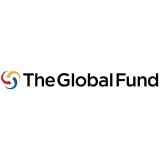
The Global Fund to Fight AIDS, Tuberculosis and Malaria (GFATM)
About
The Global Fund is a 21st-century partnership organization designed to accelerate the end of AIDS, tuberculosis and malaria as epidemics.
Founded in 2002, the Global Fund is a partnership between governments, civil society, the private sector and people affected by the diseases. The Global Fund raises and invests nearly US$4 billion a year to support programs run by local experts in countries and communities most in need.
The Global Fund is a financing institution, providing support to countries in the response to the three diseases; they do not implement programs on the ground. Global Fund staff, all based in Geneva, Switzerland, come from all professional backgrounds and from more than 100 different countries.
By challenging barriers and embracing innovative approaches, the Global Fund partnership strives for maximum impact. Working together, they have saved millions of lives and provided prevention, treatment and care services to hundreds of millions of people, helping to revitalize entire communities, strengthen local health systems and improve economies.
History of the Global Fund
The Global Fund to Fight AIDS, Tuberculosis and Malaria was created in 2002 to raise, manage and invest the world’s money to respond to three of the deadliest infectious diseases the world has ever known. The mission of the Global Fund is to invest the world’s money to defeat these three diseases.
The idea for the Global Fund arose from a wellspring of grass-roots political advocacy coming face-to-face with the imperatives of global leadership. AIDS, TB and malaria are all preventable and treatable – but solving this problem requires the commitment not only of world leaders and decision-makers but also of those working on the ground to help the men, women and children living with these diseases.
The idea was discussed at a G8 summit in Okinawa, Japan, in 2000. The real commitment began to coalesce at the African Union summit in April 2001, continued at the United Nations General Assembly Special Session in June of that year, and was finally endorsed by the G8 at their summit in Genoa in July 2001. A Transitional Working Group was established to determine the principles and working modalities of the new organization, and the Global Fund came into being in January 2002.
A 21st-century partnership
Only through partnership and constant evolution can the Global Fund achieve the collective vision of a world free of the burden of HIV, TB and malaria. Partnership means continual growth, driven by mutual respect, shared responsibility and a strong commitment by all.
A 21st-century partnership takes a modern approach to global health: to be effective, it must be agile, responsive and committed to serving communities affected by HIV, TB and malaria. It must also reach beyond the mindset of paternalistic aid that sometimes created obstacles in the past. With a more modern outlook, countries take the lead in determining where and how best to fight diseases, how to respond to broader development challenges, and how to coordinate work with international partners in global health. They also plan on how to use their increased domestic finances to leverage external resources to build resilient and sustainable systems for health.
With implementing countries in the lead, partners can take a differentiated approach to investment. That means the partnership’s investments are informed by the specific needs and characteristics of each country, as well as the divergent needs of communities most affected by diseases. Working together, partnership can deliver healthier and more productive and stable families, communities and nations.
Impact
The vision of the Global Fund is to achieve a world free of the burden of HIV, TB and malaria. The strategy is to invest for impact.
The impact of investments in health can be measured in many ways, including how many lives are saved, and the rate of decline in HIV, TB and malaria, and other methods. In a broad sense, the real impact of investments in health is the vitality and economic strength of communities and countries where the burden of disease is retreating.
Principles
Partnership
The only way to end AIDS, TB and malaria as epidemics is by working together: Governments, civil society, communities affected by the diseases, technical partners, the private sector, faith-based organizations, and other funders. All those involved in the response to the diseases should be involved in the decision-making process.
Country ownership
People implementing programs on the ground know best how to respond to HIV, TB and malaria in their local contexts. Country ownership means that people determine their own solutions to fighting these three diseases, and take full responsibility for them. Each country tailors its response to the political, cultural and epidemiological context.
Performance-based funding
Ongoing financing depends upon performance and proven results, carefully monitored and verified by Local Fund Agents.
Transparency
The Global Fund operates with a high degree of transparency in all of its work, including applications for funding, funding decisions, grant performance, results, governance, and oversight. All audits and investigations by the Office of the Inspector General are openly published. The Global Fund also fully supports and participates in the International Aid Transparency Initiative.
Type of organization
In the News
Company Offices
- Switzerland (headquarters)
- Vernier
- Chemin de Blandonnet 8

